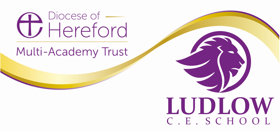A Computing education at Ludlow School equips students to use computational thinking and creativity, to understand and change the world. Students are taught the principles of information technology and computation, how digital systems work, and how to put this knowledge to use. Building on this knowledge and understanding, students are equipped to create programs, systems and ensures that students become digitally literate – able to use, and express themselves and develop their ideas through technology. The students study the three main strands of Computing – Computer Science, Digital Literacy and E-Safety:
Computer Science gives students the opportunity to use their problem solving skills and to use computational thinking to create solutions to given real world problems. They are able to design and write computer programs to solve given real world scenarios. Students will investigate the technology that they use every day.
Digital Literacy aims to arm students with the skills, knowledge and understanding that will help them to become responsible, competent, confident and creative users of information and communication technology.
E-Safety aims to help students to understand a range of ways to use technology safely, respectfully, responsibly and securely. This includes looking at protecting their online identity and privacy; recognising inappropriate content, contact and conduct; and knowing how to report concerns they have. Our curriculum aims to give students the skills to make them responsible cyber citizens and happy cyber citizens. Students will study how the law applies to computers and to students so that they are informed of how they should conduct themselves when using technology.
Overview of KS3
The Computing curriculum at Key Stage 3 allows for a gradual progression of Computing knowledge, understanding and skills following the three strands. Students with look at what software applications, such as Word and Excel, and how these are used. They will study the positive use of internet, the dangerous use of applications and how laws are to be followed ,such as copyright and GDPR to keep data safe (e-safety). The curriculum allows for students to work independently, but also collaboratively. Students will work on tasks by themselves, using the knowledge they have gained from teacher demonstrations and activities aimed at deepening their learning, through retention and retrieval activities through regular knowledge checking quizzes and problem solving tasks. These activities could be unplugged or completed on computer. They could be practical tasks or they could be discussion tasks. They will prepare for the discussion and then have a whole class debate or small group discussions, that allow students the chance to express their opinions and share their thoughts on important and current issues. These activities help students to gain confidence in speaking in front of others, helps to develop their listening skills and it helps them to increase and deepen their academic vocabulary. Being able to have a discussion with other people and listen to other views even if it is not their own are skills that they will be able to use in life after school.
KS4 Core Computing
Being digitally literate is essential in the world beyond school. At Key Stage 4, the focus is to prepare students for life beyond Ludlow School. Students will use the skills they gain from our curriculum in life after Year 11, whether that is at college or university or employment. Students will study software applications that will have an impact on their future lives, such as cash flow and budgeting. Businesses are looking for digitally literate employees, and our curriculum will help students to feel confident and secure in their knowledge, understanding and skills of information technology.
COMPUTER SCIENCE – GCSE
Examination Board: OCR
The school boasts a modern suite of computers and dedicated IT support. GCSE Computer Science is an optional two-year course for students in Years 10 and 11. There are three components of study:
Component 01: Computer systems
Introduces students to the central processing unit (CPU), computer memory and storage, data representation, wired and wireless networks, network topologies, system security and system software. It also looks at ethical, legal, cultural and environmental concerns associated with computer science
Component 02: Computational thinking, algorithms and programming
Students apply knowledge and understanding gained in component 01. They develop skills and understanding in computational thinking: algorithms, programming techniques, producing robust programs, computational logic and translators.
Practical programming
Students are to be given the opportunity to undertake a programming task(s) during their course of study which allows them to develop their skills to design, write, and test and refine programs using a high-level programming language. Students will be assessed on these skills during the written examinations, in particular component 02 (section B).
Assessment:
Paper 1: Computer Systems
Written examination paper: 1 hour and 30 minutes, 50% of total GCSE
This is a non-calculator paper. All questions are mandatory and consists of multiple choice questions, short response questions and extended response questions.
Paper 2: Computational Thinking, Algorithms and Programming
Written examination paper: 1 hour and 30 minutes, 50% of total GCSE
This is a non-calculator paper.
This paper has two sections: Section A and Section B. Students must answer both sections. In section B, questions assess students’ ability to write or refine algorithms and must be answered using either OCR exam Reference Language or a high level programming language they are familiar with.
Further information from Mrs C Duodu
